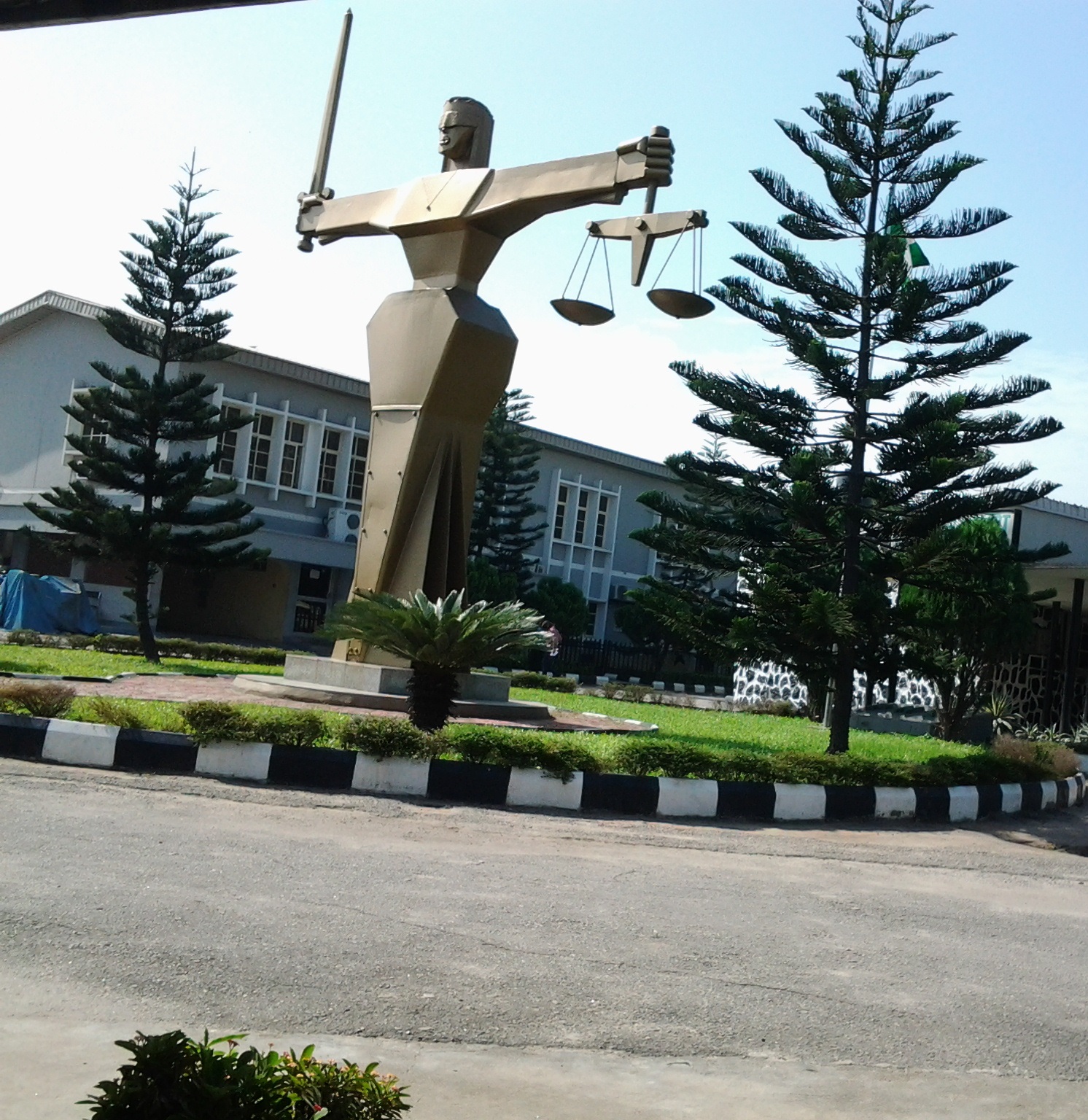 |
| Federal High Court in Lagos |
The Federal High Court, Abuja has granted accelerated hearing in a matter brought by four Nigerians challenging the difficulties encountered in the transfer of voter registration.
Joel Onumonu, Bala Angyau, Jenner Nwosu and Bello Toluwase are challenging the alleged encumbrances put in the way by the Independent National Electoral Commission (INEC), which they argued would disenfranchise millions of registered Nigerian voters during the presidential election.
They are contending that the process prevents voters from voting outside the state where their details were captured unless and until the citizen applies to INEC or the Resident Electoral Commissioner (REC) for transfer of his or her voter registration from the state or polling area in which he currently resides.
The plaintiffs are also arguing that the practice is an infringement of their legal entitlement to a free exercise of right to vote in presidential elections in Nigeria as guaranteed by Section 132 (5) of the 1999 Constitution (as amended).
They added that “it constitutes violation of Section 132 (4) of the same constitution and intendment of the legislature in Section 9 (1) of the Electoral Act 2010.”The plaintiffs therefore raised five questions for the determination of the court, including whether by the provisions of “Section 78 of the Constitution of the Federal Republic of Nigeria 1999 (as amended); Paragraph 15 (e) of the 3rd Schedule Part 1 of the Constitution of the Federal Republic of Nigeria 1999 (as amended); and Section 9 (1) of the Electoral Act 2010 (as amended), among others.
Justice Nnamdi Dimgba upon granting the application, directed the plaintiffs to serve the court papers on INEC after the ex parte motion was moved by their counsel, Abel Ozioko. Subsequently, the suit was adjourned till September 5, 2018 for hearing.
In this article:
Joel Onumonu, Bala Angyau, Jenner Nwosu and Bello Toluwase are challenging the alleged encumbrances put in the way by the Independent National Electoral Commission (INEC), which they argued would disenfranchise millions of registered Nigerian voters during the presidential election.
They are contending that the process prevents voters from voting outside the state where their details were captured unless and until the citizen applies to INEC or the Resident Electoral Commissioner (REC) for transfer of his or her voter registration from the state or polling area in which he currently resides.
The plaintiffs are also arguing that the practice is an infringement of their legal entitlement to a free exercise of right to vote in presidential elections in Nigeria as guaranteed by Section 132 (5) of the 1999 Constitution (as amended).
They added that “it constitutes violation of Section 132 (4) of the same constitution and intendment of the legislature in Section 9 (1) of the Electoral Act 2010.”The plaintiffs therefore raised five questions for the determination of the court, including whether by the provisions of “Section 78 of the Constitution of the Federal Republic of Nigeria 1999 (as amended); Paragraph 15 (e) of the 3rd Schedule Part 1 of the Constitution of the Federal Republic of Nigeria 1999 (as amended); and Section 9 (1) of the Electoral Act 2010 (as amended), among others.
Justice Nnamdi Dimgba upon granting the application, directed the plaintiffs to serve the court papers on INEC after the ex parte motion was moved by their counsel, Abel Ozioko. Subsequently, the suit was adjourned till September 5, 2018 for hearing.
In this article:
